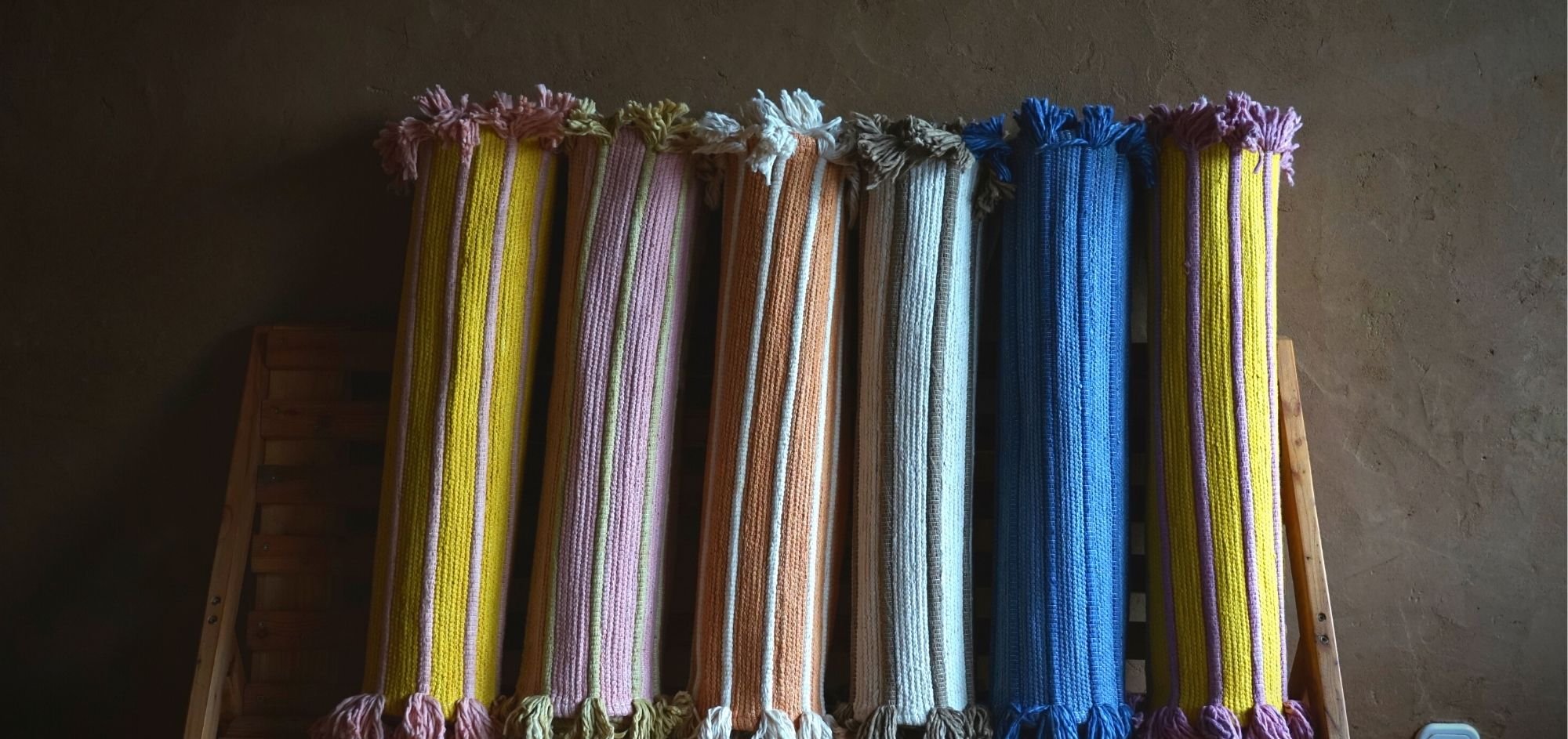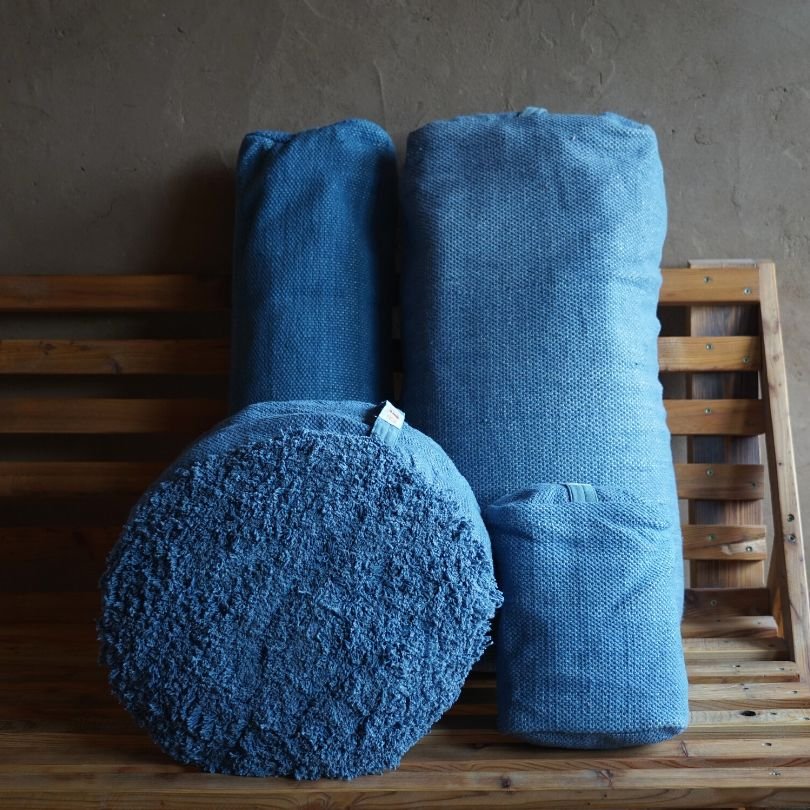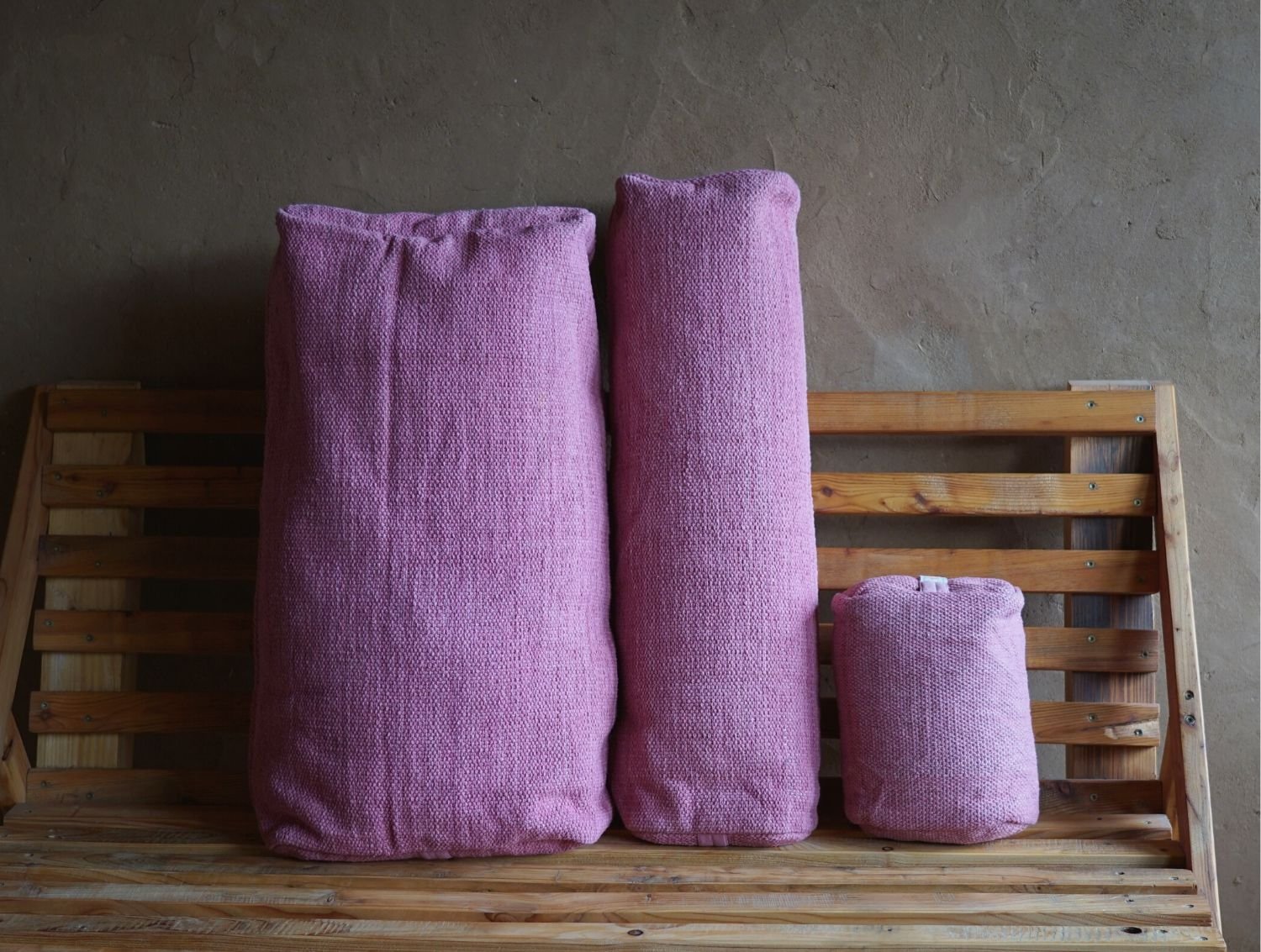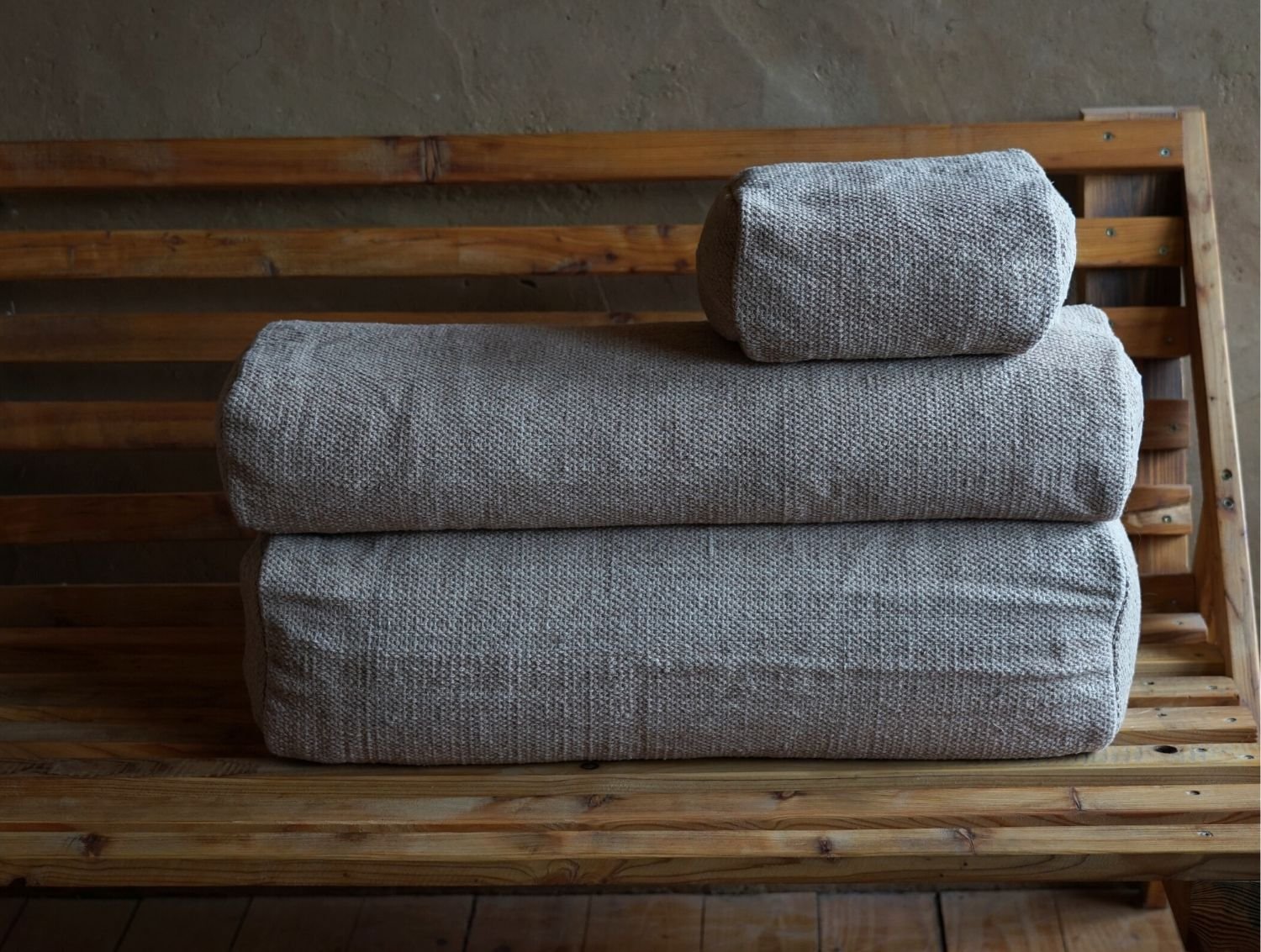Handmade & Eco-Friendly Yoga Tools at Wild Cat - magga brand
I have spend four years researching about yoga tools using which reflect the principles of yoga - do no harm, to others and to yourself. In the ever-growing market of plastic yoga mats, cushions or clothes it is hard to find products which are sustainable, ethically made and 100% natural. Well, it’s hard but not impossible.
Mission (im)possible
Not so long ago the yoga mat business started to bloom, offering lots of options for yogis to support their yoga practice. Mats made of PVC, polyurethan, rubber, microfiber or cork started to be widely available on the market. Many products were advertised as “eco-friendly” or “100% natural”, but they contained microfibers, or were simply made fully out of plastic. I started to ask myself what “eco friendly” really means? It might mean the product was made our of natural materials, but some brands were stating that the mats are natural because they contain natural rubber, but skipped the rest of the truth by not informing about the other materials the mats are made of, for example microfiber, which is basically plastic, not eco-friendly, even if made of “plastic water bottles from the ocean”. This is simply greenwashing.
The brands were often stating the mats are made sustainably and ethically, but they were ordered from a big factory, somewhere in China, where nobody can really verify what are the working conditions of the employees. Others were saying that their mats can last for 20 years, and that is why they are eco-friendly, but didn’t inform that the mats are durable because they are made of… plastic. Many brands are saying that their mats are biodegradable, but fail to say that just partially. Some materials biodegrade after hundreds or thousands of years, so it’s also hard to verify what “biodegradable” really means. And then the big question - is a product eco-friendly if it can be recycled, but is still made of plastic?
Let’s define “eco-friendly”
I developed my own definition of what “eco-friendly mat” means. Such product must be made of natural materials, its production cannot involve any harmful substances and can’t leave any toxic waste. Such mats need to be rather durable and biodegradable in the nature at the end of their cycle, in only a few years and produced by a team of people easy to verify. To be honest, after failing to find a brand that would satisfy my requirements, writing to brands and asking uncomfortable questions I got a bit fed up with the topic. Until this year, when I discovered the most beautiful mats and yoga cushions I’ve ever seen, which totally fit my eco-friendly approach. And so I started magga.
Magga x Ayurvastra
In 2022 I found my current partner from India, an Ayurvedic specialist and a professional in Ayurvastra field - an art of creating healing fabrics. Her honesty, passion and love for what she is doing were totally contageous. I immediately fell in love with the concept of practicing yoga on a handmade product, made entirely from plants, and have decided to create Magga, in collaboration with her - a brand that is a reflection of what I preach during my yoga classes - don’t harm & do good.
Magga mats are 100 % natural, made of ethically sourced cotton and natural latex, and dyed exclusively with plants and herbal remedies, based on Ayurvedic principles. They contain no plastic, their production doesn’t leave any toxic waste or cause harm to the people who take part in the process. They are biodegradable as cotton takes around 2 years to fully merge back with the nature (this number depends on the thickness of the material and conditions where the cotton is left though). The threads which are used in creation of mats and other Magga products are handspinned, the fabrics handwoven and dyed by hands of people who specialize in this process. All dyes used in creation of Magga products are 100% plant-based, mixed with medicinal mixture of more than 22 herbs called Kaysham, and dyes leftovers are used as a fertilizer for the local ayurvedic garden. Many local women are involved in creation of Magga products, and through that they have an opportunity to become more independent and practice the crafts they’re so good at, while learning new skills in the process. There is only good energy which is transferred into everything with Magga label.
Why to care?
What we buy influences the market. If we buy more plastic, there will be more plastic available. If we buy more eco-friendly stuff, there will be more and more of them available. We, individuals shape the market and all single actions sum up. Then, if we buy a plastic yoga mat, what happens to it when it finally lands on the mountain of trash? Is it burned? Buried? Does it degrade, leaving microplastic in the landfill? Is it recycled? I often encourage people to think of the trash they leave behind. We tend to forget about it once we get rid of it, but it is still here, on the same planet, and makes an impact. If we don’t buy plastic bags, or drink from reusable bottles, we can as well switch to yoga tools which will simply merge back with earth, when they are thrown away some day. That is my dream world actually, that we only create what can become a part of the nature again.
Where to find Magga?
You can buy maga products at our website www.maggayoga.eu. For now you can check out our sample products at Wild Cat studio at Seebener str. 172, where you can also purchase them as well. We offer special price for studio members and a 20EUR discount for your first purchase.
Let’s swap to truly natural and eco-friendly products and make a positive impact.
Article written by Marta Witecka.







